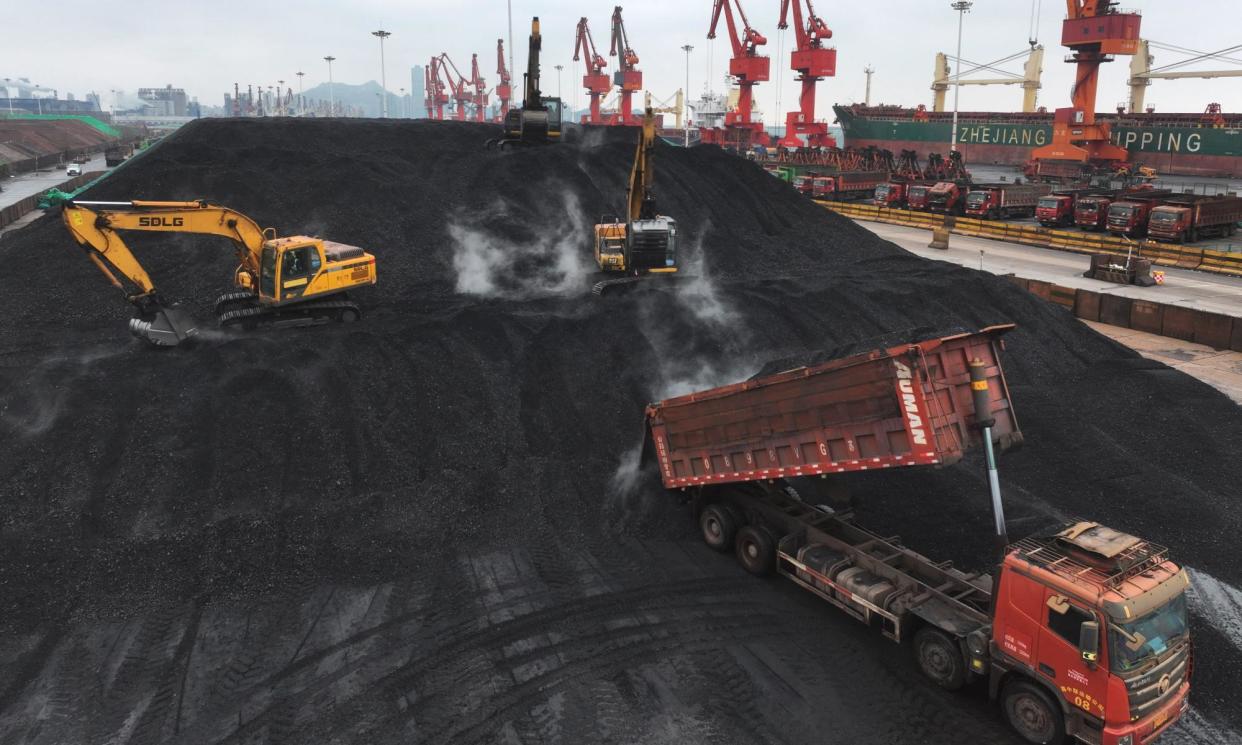Most people in petrostates want quick switch to clean energy, UN poll finds

Most people in the world’s biggest fossil fuel producing countries want their countries to transition quickly to clean energy to fight the climate crisis, according to the largest ever climate opinion poll, conducted by the UN.
Many of these states have profited heavily from fossil fuel exploitation, but the 77-nation poll shows their citizens are deeply concerned about the impacts of global heating on their lives. In China and India, the biggest coal producers, 80% and 76% respectively want a quick green transition.
In the US, the world’s biggest oil and gas producer, 54% of people want a fast transition, as do 75% of those in Saudi Arabia, the second biggest oil producer. The poll also found 69% of Australians want a quick transition away from its large coal and gas sector.
The UN Development Programme said the purpose of the poll was to show political leaders what millions of people around the world felt about the climate emergency, and what action they wanted taken. “It is so important we let the people speak for themselves,” said Achim Steiner, the UNDP head.
The poll questioned 75,000 people in countries representing almost 90% of the global population. It found a large majority (80%) wanted their countries to strengthen their climate change commitments, with only 5% saying their country should weaken its action.
Even more – 86% – wanted to see their countries set aside geopolitical differences and work together on climate change. Steiner said this level of consensus was “stunning”, given the increase in conflict and the rise of nationalism around the world.
“There can be no doubt that citizens across the world are saying to their leaders, you have to act and, above all, have to act faster,” he said. “This is an issue that almost everyone, everywhere, can agree on.”
Steiner said some fossil fuel nations would have to go through “existential shifts”.
“There are very narrow, self-interested agendas that maintain artificially inflated [profits] for fossil-fuel-based industries that ultimately are coming at the cost of everyone,” he said. “Hundreds of billions of dollars of fossil fuel subsidies are artificially slowing down an energy transition – [it] is deliberately being held back by a distorted market.
“But we are definitely peaking on fossil fuels and we are seeing exponential growth rates in renewables and what the public ultimately wants is unquestionably pointing in the direction of a net zero transition.”
The People’s Climate Vote contacted participants via randomly generated telephone numbers, with results weighted to ensure they represented national populations, and special effort was made to reach those sometimes overlooked by polling, such as older women without any formal education.
Globally, the poll found 72% of people wanted their country to transition quickly away from fossil fuels to clean energy, with majorities in nine out of 10 countries. Only 7% of people said there should be no transition at all.
There were large majorities in significant fossil fuel producers, including Nigeria (89%), Brazil (81%), Iran (79%), UK (76%) and Canada (65%). However, Russia (16%) and Iraq (43%) were exceptions.
The poll also found that 56% of people globally said they thought about climate change daily or weekly, and a similar number said they were more worried about climate change than they were a year ago. Almost 70% said their big decisions, such as where to live or work, were being affected by climate change.
“Climate change is on people’s doorsteps, and they know it,” said the UNDP global director of climate change, Cassie Flynn. “Extremes are a part of our everyday lives, from the wildfires in Canada, the droughts in east Africa, to the flooding in UAE and Brazil.”
Cop29, the UN’s annual international climate summit in December, is set to be dominated by the issue of climate finance and the poll showed 79% of people wanted rich countries to give more support to poorer countries.
“The social and justice dimensions of the climate transition have become perhaps the most central variables in the way the politics will play out in the years to come,” said Steiner. “One of the lessons everyone has learned in recent years is do not underestimate the concern people have for their livelihoods and their ability to pay their energy bills.”

 Yahoo News
Yahoo News 
